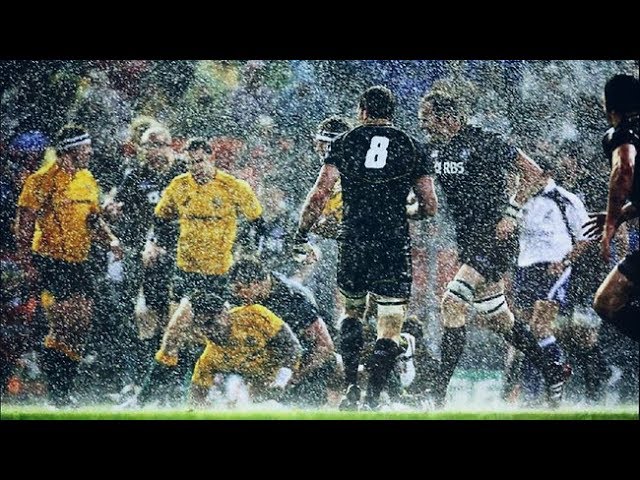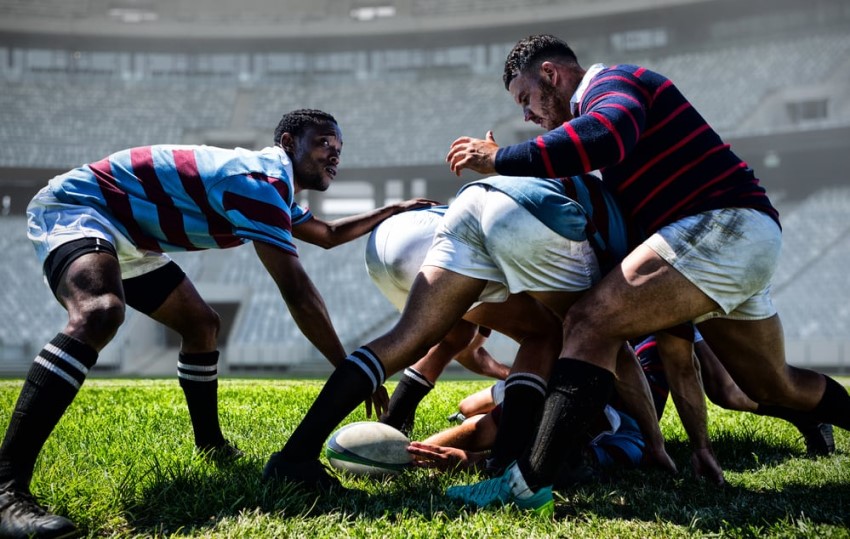Rugby is a sport mainly played in Europe and Australia, which is a precursor to American football, rugby and football have many similarities. The sport has a huge fan following around the world. So many people ask the question: “how long is a rugby game?” and what are the standard rugby rules? We will answer your questions in today’s article.
How long is a rugby game?
Normally, professional rugby matches usually last 80 minutes and are divided into two halves of 40 minutes each. Times may vary based on the type of rugby being played. For cut-off rugby, each half lasts only 7 minutes so the total playing time is 14 minutes. Between halves there is also a break plus injury time, most rugby matches are only 20 minutes long. Shorter matches often mean that rugby teams will play more games on the same day.
Although rugby back-to-back games have a total of 80 minutes, they usually take around 100-120 minutes to complete in real time. This takes into account the 15-minute halftime break and any injuries or stoppage time. For televised rugby matches, it could last even longer if commercials were broadcast during the match. Compared to American football and other American sports, the game of rugby is much faster. So we helped you answer the question how long is a rugby game?

Rugby Games will stop when:
Halftime
One of the main reasons the game was stopped was the halftime break. Rugby has a 15- or two-minute halftime break depending on the type of match being played. At a higher level, rugby union teams will leave the field to enter the locker room for halftime. One can perform art intended to entertain fans in the meantime. Basically, that’s enough time for the players to quickly get back on the bench, drink some water, and get back on the pitch.

Injury
Rugby is an extremely interesting and humane sport. Whenever a player is injured on the field, play is immediately stopped. At this time, the doctors outside will directly check and give first aid to the wound. Depending on the severity of the injury, it may take some time for the doctors to take care of the player. If the injury is severe and the player cannot move, a stretcher will be brought in to take the player out for treatment. Injuries are a common occurrence during matches and this can slow down the game and add time to the overall game. The more injuries that happen, the longer the game will last.

Change player
Substituting players is also the cause of the game’s pause. An outside player will be selected to replace the player playing on the field. Not every sport pauses the game clock when there is a substitution, but in rugby it does. Football is similar. When the player has completely left the field and a new player is in position, the game will start again. Player substitutions are quite important in rugby. Depending on how many players are substituted, the game can go on even longer.
Overtime or Extra time
Most rugby matches will end in a draw if time runs out and the score is even. However, there are special cases where a winner must be determined, such as a Rugby World Cup knockout. If the two teams tie after 80 minutes of play, they will have to play 20 minutes of extra time. If the match is still tied after 100 minutes, the teams will be assigned to play for another 10 minutes. An extremely rare case is when the teams are still tied after 110 minutes, now each team will take a penalty shootout of 5 penalties from 22 meters away to decide the winner.
Game over
You may be surprised to watch a football game and see that the match doesn’t end when the clock hits zero. The 40-minute and 80-minute marks are known as that in rugby. The same goes for games at 7 and 14 minutes. As a rule, the game is not over until the ball is dead. This means that either the match is completed or a team scores a point or a dead ball occurs, the game is over. Depending on how long the ball is dead, it can prolong the game by several minutes.
Change the ball
Like American football, there are times when the ball will be left on the field. Like other games, if the ball ends in the stands, the game is over. At this point, the game clock stops, and a referee puts a new ball on the field. While not every match will feature the ball in the stands, if it does, it could add a little more time to the game. When the new ball is put into the field the clock will continue to run.
Weather conditions
The final reason a rugby match could be extended is the weather conditions. If it rains too heavily, the snow is too heavy, or there is thunder, the players will be allowed to leave the field and take shelter in another suitable location. In fact, this is rarely the case because the game of rugby is usually played on sunny days. Depending on the severity of the weather, it may take a while for the game to resume. That can also prolong the duration of the match.

Conclusion
To sum up, Rugby is a sport that is quite popular and increasingly loved around the world. Today we have provided some information about how long is a rugby game as well as the rules of stopping the game present in rugby. We believe that for new viewers and rugby fans, it will be helpful to know this information. If you have any questions, leave us a comment below. Rugby QA is happy to answer for you. See you in the next football-related articles.
Read more:

